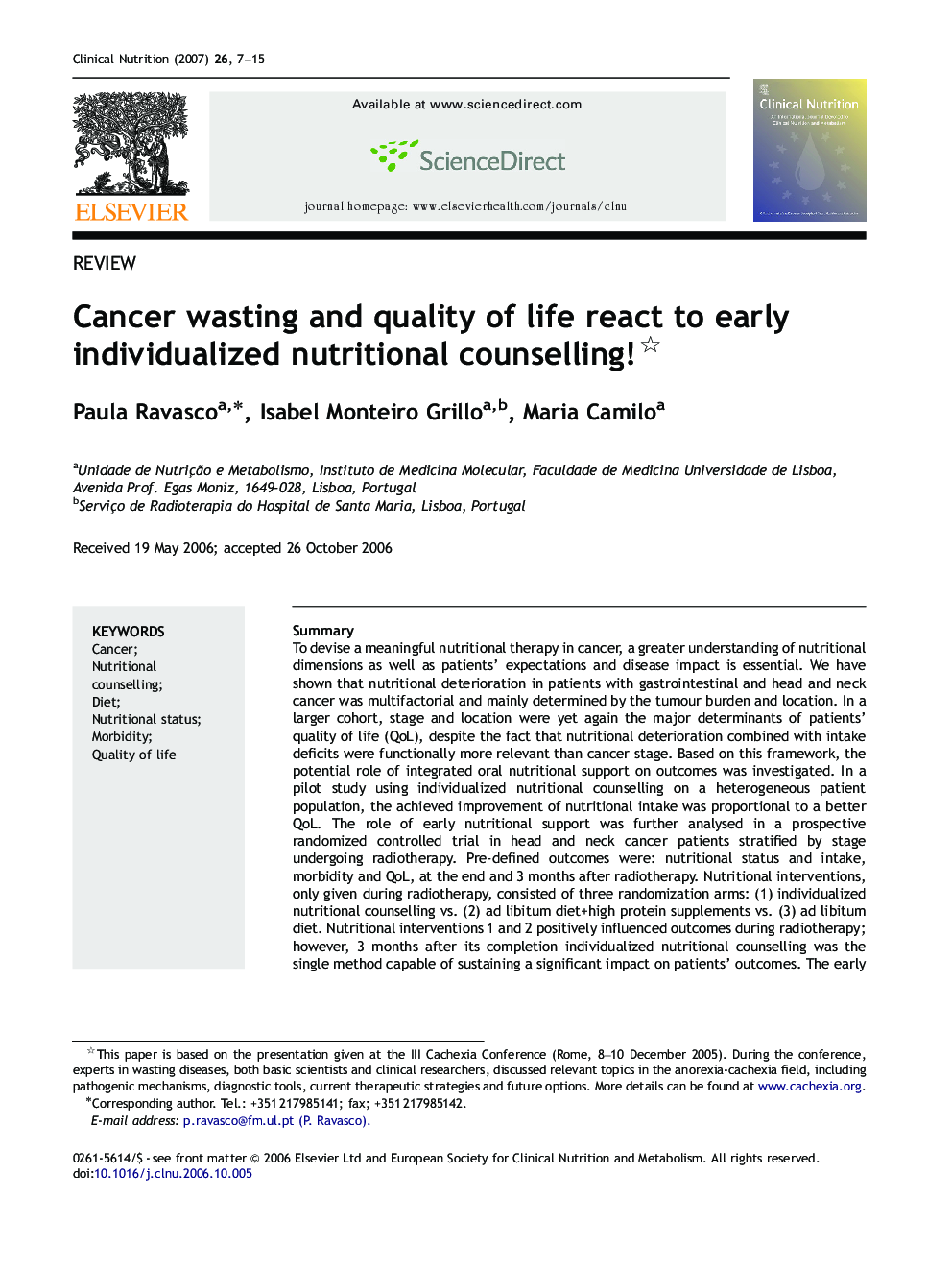| Article ID | Journal | Published Year | Pages | File Type |
|---|---|---|---|---|
| 2684475 | Clinical Nutrition | 2007 | 9 Pages |
SummaryTo devise a meaningful nutritional therapy in cancer, a greater understanding of nutritional dimensions as well as patients’ expectations and disease impact is essential. We have shown that nutritional deterioration in patients with gastrointestinal and head and neck cancer was multifactorial and mainly determined by the tumour burden and location. In a larger cohort, stage and location were yet again the major determinants of patients’ quality of life (QoL), despite the fact that nutritional deterioration combined with intake deficits were functionally more relevant than cancer stage. Based on this framework, the potential role of integrated oral nutritional support on outcomes was investigated. In a pilot study using individualized nutritional counselling on a heterogeneous patient population, the achieved improvement of nutritional intake was proportional to a better QoL. The role of early nutritional support was further analysed in a prospective randomized controlled trial in head and neck cancer patients stratified by stage undergoing radiotherapy. Pre-defined outcomes were: nutritional status and intake, morbidity and QoL, at the end and 3 months after radiotherapy. Nutritional interventions, only given during radiotherapy, consisted of three randomization arms: (1) individualized nutritional counselling vs. (2) ad libitum diet+high protein supplements vs. (3) ad libitum diet. Nutritional interventions 1 and 2 positively influenced outcomes during radiotherapy; however, 3 months after its completion individualized nutritional counselling was the single method capable of sustaining a significant impact on patients’ outcomes. The early provision of the appropriate mixture of foods and textures using regular foods may modulate outcomes in cancer patients.
